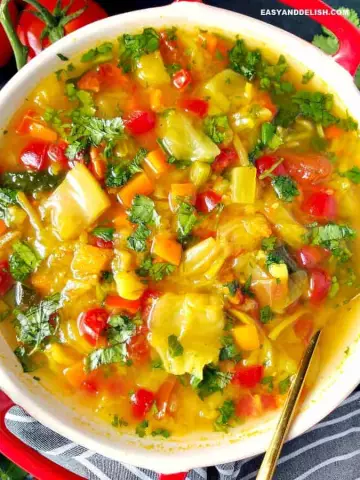- Author Rachel Wainwright wainwright@abchealthonline.com.
- Public 2023-12-15 07:39.
- Last modified 2025-11-02 20:14.
Savoy cabbage
Savoy cabbage originates from wild Mediterranean cabbage species that were especially widespread and popular in Western Europe and the tribes of North Africa. This type of cabbage in Russia is quite rare and grows mainly on summer cottages.
The ratio of BJU in the product

Source: depositphotos.com How to burn 27 kcal?
| Walking | 7 minutes |
| Jogging | 3 min. |
| Swimming | 2 minutes. |
| A bike | 4 minutes |
| Aerobics | 5 minutes. |
| Household chores | 9 minutes |
Unlike the white cabbage, Savoy cabbage has more curly and corrugated leaves, and also contains more proteins and vitamins. This variety of cabbage has a pleasant taste and high useful properties, both fresh and stewed and boiled.
Savoy cabbage leaves and heads of cabbage are eaten. A head of cabbage contains about 4% protein, about 3-5% sugar, 1% mineral salts and up to 90 mg of vitamin C.
Properties of savoy cabbage
Savoy cabbage has many beneficial and healing properties. The leaves of this cabbage contain nitrogenous, mustard and various biologically active substances. Along with minerals, carbon and potassium, this cabbage has 20% more fiber than other types of cabbage.
Savoy cabbage is of great benefit when used as a dietary product that is easily absorbed by the body and enriches it with useful substances and vitamins. It contains up to 40 mg of vitamin C, 5-8 mg of vitamin E, about 3 mg of vitamin K, as well as calcium, magnesium, phosphorus and carotene.
Savoy cabbage leaves are low in calories (an average of 100 g - 40 kcal) and contain in their composition beckons, a substance that is a natural sweetener.
Savoy cabbage varieties
There are several main varieties of Savoy cabbage with the most pronounced beneficial properties and a high content of vitamins. These include:
- Alaska is a mid-to-late-season hybrid. Contains vitamins A and C, riboflavin, iron and phosphorus, thiamine and carotene.
- Tasmania is a mid-season hybrid with a high content of ash, E vitamins and phosphorus.
- Venskaya is an early small-sized variety with small leaves. This cabbage is the most juicy and easily digestible. Well suited for a dietetic diet.
Disease prevention
The medicinal properties of Savoy cabbage have been proven by various international medical studies. According to the research results, a unique preventive property of Savoy cabbage, directed against the formation of cancer cells, was established. Phosphorus in cabbage stops negative processes in DNA molecules.
Doctors recommend using this product for patients with digestive disorders, diseases of the vascular system, and hypertension. Savoy cabbage is also used for the prevention and treatment of various diseases and pathologies of the digestive system.
Savoy cabbage is a natural diuretic, bactericidal, antioxidant and vitamin-rich plant.
This type of cabbage is especially useful for children and the elderly who require vitamins and mineral components. Savoy cabbage increases appetite, strengthens the body's defenses and restores the immune system, improves the functioning of the nervous system, and stabilizes blood pressure.

Contraindications
Contraindications for the use of savoy cabbage are individual intolerance, the period after operations on the digestive organs, the presence of liver diseases, intestinal obstruction, gastritis and colitis.
It is not recommended to include savoy cabbage in the diet for exacerbation of duodenal and stomach ulcers, thyroid hyperfunction.
YouTube video related to the article:
Found a mistake in the text? Select it and press Ctrl + Enter.






